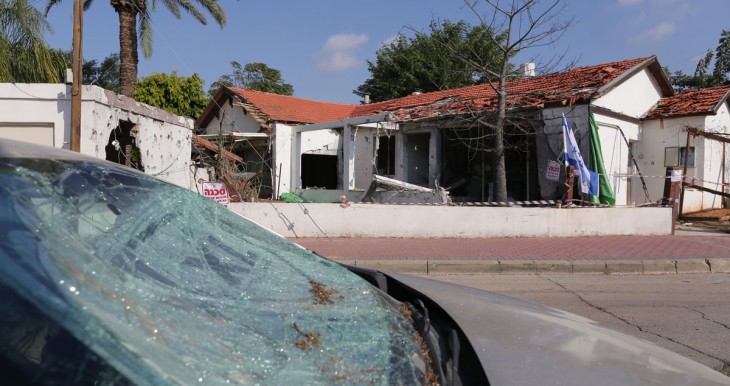Jewish Agency absorption centers offer a “soft landing” and transitional housing for new immigrant families and adults at the beginning of their acculturation process in Israel. But what happens when that soft landing is disrupted by rocket attacks from Gaza?
While hundreds of rockets fired by Palestinian terrorists pummeled southern Israel in November, The Jewish Agency’s Beit Canada Absorption Center in Ashkelon found itself directly in the line of fire, as two rockets landed in the heart of the southern coastal city.
“As soon as I heard the first alarm at night, I started the car and drove to the absorption center, leaving my children at home with my wife,” recalls Gadi Zohar, the absorption center’s director.
Gadi as well as local ShinShinim — young Israelis who, in a Jewish Agency partnership with the Avi Chai Foundation and Israel’s Education Ministry, choose to defer their army service for a year to volunteer within Israeli society, through frameworks organized by youth movements and non-profit organizations — guided the new immigrants through the crisis by helping assuage their anxiety, playing with children in security rooms, and responding in other ways.
“This situation was very difficult for the new immigrants,” says Yonatan Bar, a ShinShin from outside Tel Aviv, who serves at the absorption center. “When the alarms went off, we acted in a proactive manner with the goal of leading the children to safe places in the absorption center.”
“We asked each and every one of the immigrants whether they needed help, if they needed additional support. We gave them the feeling that they are not alone,” says Daniel Cohen, a ShinShin from the northern Israeli town of Carmiel.
A total of nine ShinShinim serve the absorption center in Ashkelon. When the rockets struck, after providing immediate assistance for the immigrants, they accompanied children to their schools.
Adriana Stone, a Brazilian immigrant and former resident of the absorption center who still lives in Ashkelon, had the center’s current residents as well as Israeli soldiers at the forefront of her mind during the latest surge in rocket fire from Gaza. In the security room of the Stone family’s home, Adriana’s 4-year-old son, Gabriel, requested that they recite Psalms.
“Gabriel did not leave my side, and he was praying nonstop for the soldiers,” Adriana says.
Although her family left the absorption center more than a year ago, Adriana still comes to the center to volunteer.
“I cannot explain how grateful I am to the center’s staff for helping me, from the day I immigrated to Israel and to this day,” she says.
Learn more about absorption centers >
-
This story was originally written in Hebrew by Nathan Roi for The Jewish Agency for Israel


 0
0


